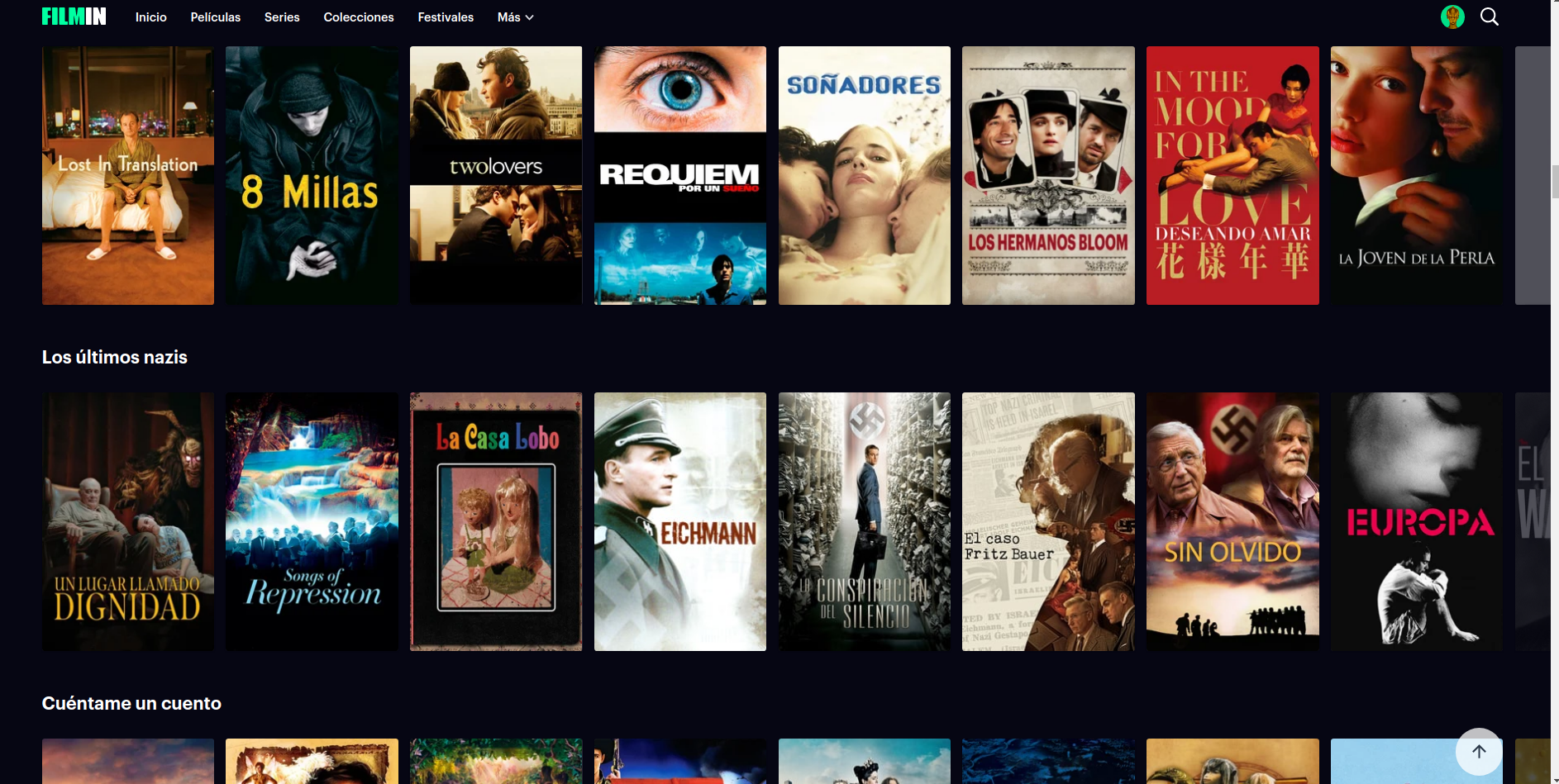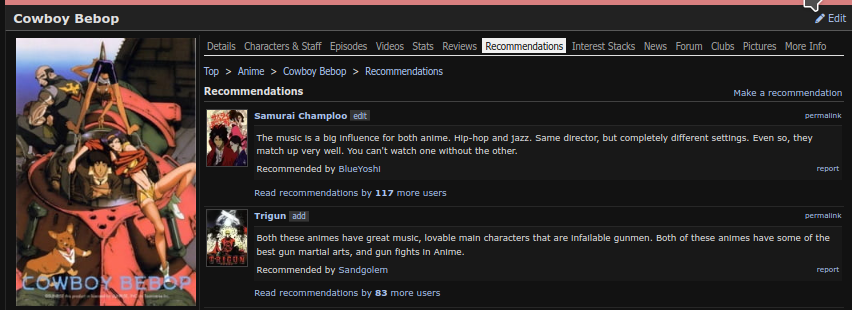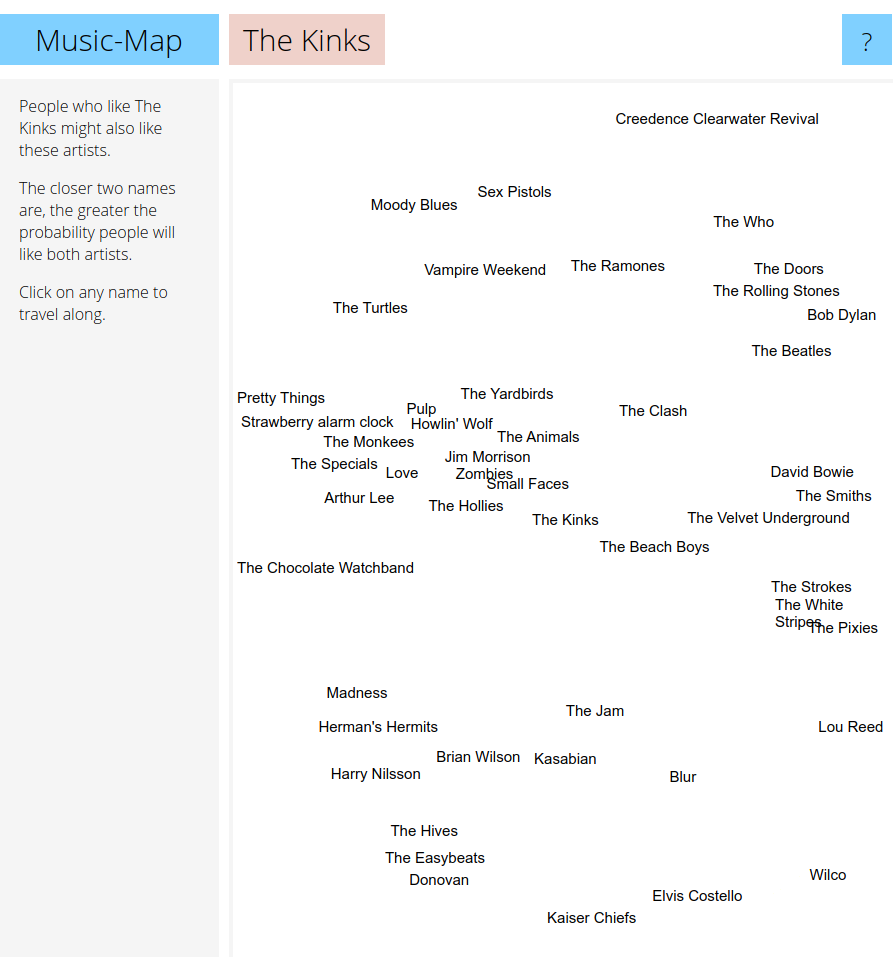Often, we find ourselves exhausted by the overwhelming amount of content available on our favourite platforms. It can be a real challenge to make a selection from the vast sea of options. Luckily, all platforms have a great algorithm that chooses for you and reduces the sea of options to just a dozen of items. Furthermore, it’s usually accurate… If I enjoyed Toy Story 3, I’d certainly like Toy Story 4. It’s almost always spot on.
A recommendation system, also known as “the algorithm,” is a system designed to predict how you will rate items like Netflix series, YouTube videos, or Amazon products based on your past ratings. It goes beyond just your explicit likes or dislikes and takes into consideration factors such as watching a video until the end, which can be even more influential in understanding your preferences.

YouTube’s algorithm is like a mirror
In this article, I won’t go into detail about how these systems work. There is plenty of information about it available online, and I want to keep this article concise. You can find some videos and articles I found interesting at the end of this article.
In simple terms, recommendation systems are typically machine learning systems that aim to find groups of users with similar preferences and recommend items within those groups. E.g: if Alice and Bob have similar tastes and Bob discovers a new music group that he enjoys, probably, Alice will also like that group.
It is quite common for these systems to not know the content or genre of a video or song. They solely consider the similarity of tastes between Alice and Bob. The recommendation systems don’t take into account the specific details of the content but rather focus on the alignment of preferences between Alice and Bob.
However, the ultimate goal of any machine learning system is to optimize something. Is it for “fun,” “entertainment,” or “learning”? Well, most likely, the companies that design these algorithms decide to optimize them for generating the highest possible amount of revenue. In other words, they aim to keep you hooked on their recommendations for as long as possible. And they are incredibly effective at achieving this goal.
Sometimes, we want to break free from the comfort zone created by “the algorithm” and explore new things. We might want to start buying fantasy books even if we’ve never read one before or listen to some electro-psychedelic cumbia, if such a genre exists. However, taming the algorithm to show us exactly what we want can be extremely challenging. It often leads us either to mainstream content or down a rabbit hole with no way out, eventually leading us to unexpected and undiscovered niches.
For these reasons, in this article, I present 6 alternatives to recommendation algorithms:
This article is alive and was updated on August 4, 2024
1. The Curator: Podcasts, radios, blogs…
I will start by talking about Radio 3, from whom I borrowed the slogan “death to the algorithm!” for the title of this article. For readers outside of Spain, Radio 3 is a Spanish public radio known for its alternative but wide programming. In their last publicity campaign, they decided to emphasize human curation and DJ selection rather than relying on algorithms for music recommendations.
A great option for discovering new things is to seek out knowledgeable individuals who specialize in discussing those topics. Read blogs, listen to radio shows and podcasts, watch videos and vlogs, ask people you know, read articles in magazines—whatever works for you!
In addition to discovering new things, actively engaging in your favourite hobbies can provide a fresh perspective and be an enjoyable hobby in itself. The mere act of reading about a topic can be entertaining and fulfilling. For instance, when it comes to anime and video games, I personally enjoy reading both online and offline magazines. In addition to discussing manga and anime, they also feature various articles that analyze Japanese culture and the industry itself. It’s incredible how many titles I wouldn’t have discovered if it weren’t for their coverage.
When it comes to music, in addition to their live radio broadcasts, Radio 3 uploads all of their shows in a podcast format so you can listen to them whenever you want. Some programs focus on playing music with minimal commentary, while others feature interviews or analyze the latest releases of the week. Lately, I’ve been hooked on El sótano (The Basement) and Melodías Pizarras (“Pizarre” Melodies, a pun with bizarre and the name of the host) which expose me to music that isn’t readily available on many platforms.
In the end, you end up building a roster of “influencers” to whom you can return to discover new things.
2. Roll with playlists, mixes, series…
However, it is true that sometimes we just want to watch a movie without delving into an interesting program about the director’s inspirations or related topics. Similarly, there are times when we simply want to hit play and listen to music without considering the specific song, album, or artist playing at that moment.
That’s why film series, playlists, and remixes were created. They are curated packages of content that someone thought would go well together.
In Deezer, for example, you have playlists created by specialists based on moods, genres, eras, or whatever you prefer. Additionally, there are plenty of community-created playlists available through the search feature. If nothing satisfies you, you can always rely on automatic mixes and let the algorithm guide you. On the other hand, Filmin completely bypasses algorithms and exclusively offers handcrafted collections and film series with titles like “Time for Elections,” “00’s Icons,” or “California Dreamin’.”

In Filmin, you can find titles grouped into collections curated by a human
Personally, when it comes to music, I love the hour-long videos on YouTube from the channel My Analog Journal. The channel umetokakun also offers mixes with creatively titled playlists such as “Citypop to Escape Your Feelings” or “Rare Psychedelic Soft Indie Rock to Lie in the Snow and Contemplate Life.” Just the way the songs are presented, including the titles, their order, and the subtle transitions, creates an experience in itself that surpasses any algorithm.
3. The snowball effect
The snowball effect is widely used by scientists to discover new articles to read. In our case, you go to the citations and references of an article that interests you to discover new interesting articles. In those articles, you go back to the references again to discover even more articles, and before you know it, you experience exponential growth in discovery.
If we want to apply it to entertainment, we can look for things that have something in common with what we just read/listened/watched. We can search for more albums and songs from the same band (or even the same record label), more books from the same publisher, more movies from the same director or a specific actor, more TV series from the same production company, etc. Before you know it, you’ll have a long list of things you want to explore, and you’ll have learned a bit of history and culture along the way, which can come in handy for trivia games.
For example, Bandcamp allows you to explore the tags of an album, where you can discover genres you didn’t even know existed.
4. Platforms and user-generated content
There are user-generated content platforms like MyAnimeList where users can make recommendations based on what they’ve watched. Usually, these recommendations can be accompanied by a brief text where you justify why you would recommend that. For books, you also have Goodreads. And for movies and series, there’s Letterboxd. In the music world, you can rely on the old and trustworthy last.fm.

As BlueYoshi and 117 other users say: if you liked Cowboy Bebop, you’ll like Samurai Champloo
Additionally, it’s not necessary to explicitly visit recommendation pages. You can find room for suggestions on any social media or platform. Try searching on Google for “Reddit recommendation [TOPIC]” and you’ll be surprised by the good results you get. And if all else fails, you can always ask for recommendations yourself.
5. Judge a book by its spine
It is often said, “Don’t judge a book by its cover”, but if that were true, then why do books have covers? I propose letting ourselves go a little more and being more judgmental, not overthinking things and judging the book by its spine.
In this accelerationist society, we are optimizing even our leisure time, and it seems necessary that every minute we spend consuming content is of the highest possible quality and provides us with the most value. We end up prioritizing watching things that are “of better quality” over things we would like to watch or simply ignoring something because “it doesn’t ring a bell” before even considering whether to watch it.
The next time you see the cover of a movie that catches your eye, or a book with a very interesting title, take a look at it even if you’ve never heard of it before and you’re not sure if it’s the movie of the year or not.
6. Transparent algorithms
Saying that a website has no algorithms is like saying that fruit has no chemicals. Organic matter is composed of molecules, and software is composed of algorithms, it’s a fact.
However, just as there are chemical compounds to avoid for not being particularly good for health, there are also better algorithms that can help users discover what they want.
An example of this is music-map.com, which shows you a wide range of artists similar to a given artist, where the distance represents similarity.

It seems that Zombies is very similar to The Kinks, but if I want to go off on a tangent I can listen to The Who
Every Noise at Once is a similar website that showcases a huge variety of music genres, and you can see which ones are similar to each other. Additionally, by clicking, you can listen to an audio sample and see if you like it.
Certainly, any algorithm that shows you why it recommends you something or allows you to select the starting point will be better for expanding your horizons.
Conclusion
Although recommendation algorithms are powerful tools that help us navigate through the vast amount of content available on our favourite platforms, sometimes we desire to escape their influence and discover new things on our own. Fortunately, there are other options that empower us to take control of our choices and broaden the horizons of our entertainment.
If you think there’s something else I can add to this article, feel free to leave a comment or send an email to david [at] ddavo.me.
Further reading
- The entertaining 5-minute video channel Half as Interesting presents Spotify’s Mathematical System for Determining Your Music Taste.
- How Recommender Systems Work: A 10-minute video that delves into the mathematics behind the subject.
- To celebrate reaching one million subscribers, Answer in Progress has created an extensive (50-minute) yet engaging video on the history of the YouTube algorithm, explaining in the process how its opaque system works.
- Towardsdatascience has a really great introductory article to recommendation systems
